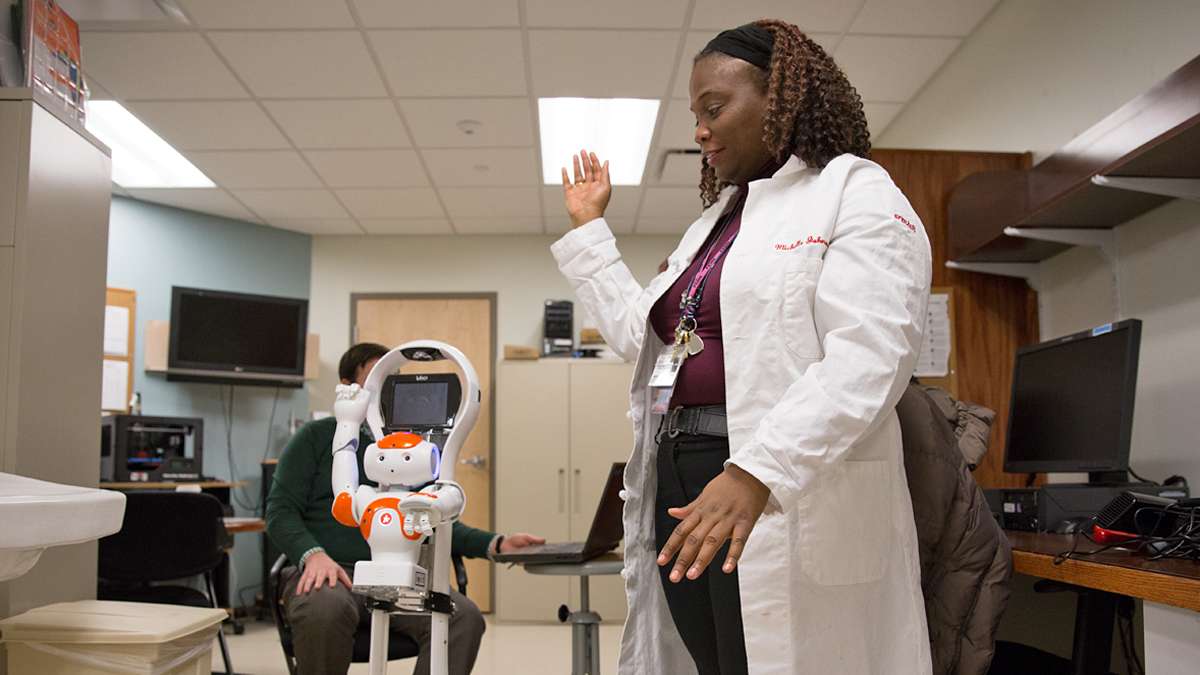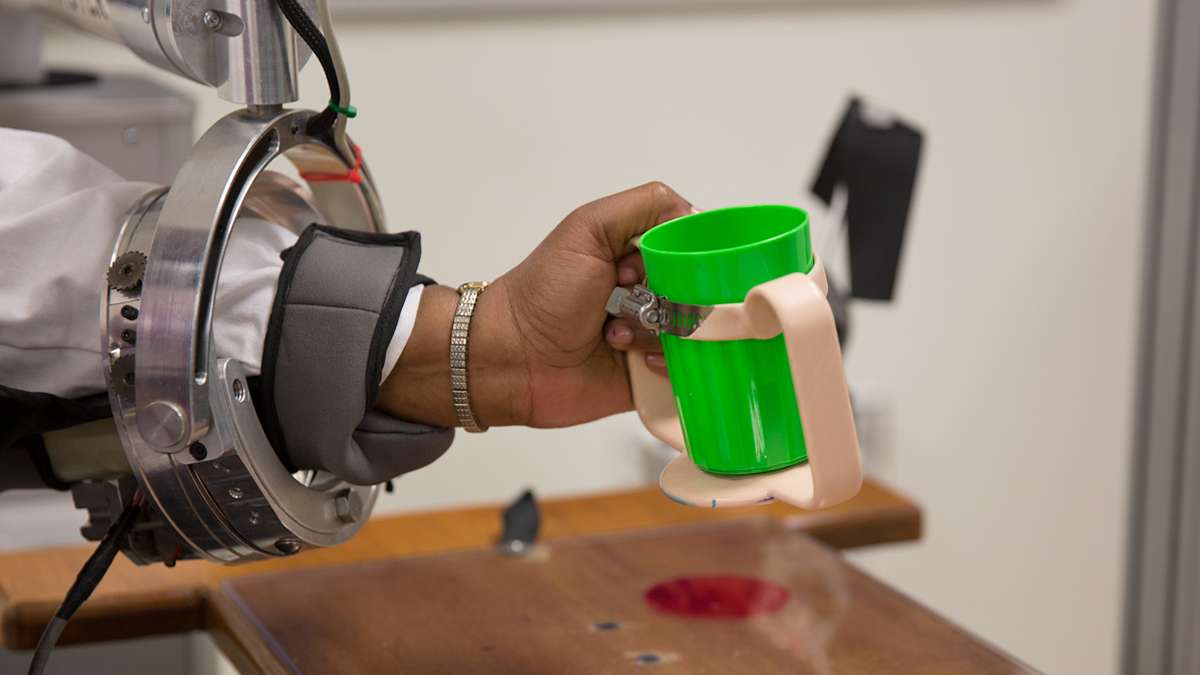A robot’s emerging role in rehab
ListenDr. Michelle Johnson takes us inside her rehabilitation and robotics lab at Penn Medicine to show us how robots can assist stroke victims.
If you believe the premise of a lot of science fiction movies, the battle for the future of mankind may come down to a war of robots vs. humans. We highly doubt this dystopian vision, but in any case, we know the robots in Dr. Michelle Johnson’s lab will be fighting on our side.
Johnson heads Penn Medicine’s new Rehabilitation and Robotics Lab. Her lab designs and tests robots to assist stroke victims with upper body disabilities.
“A stroke, if it happens in the motor area of the brain, can affect your ability to move your arm,” says Johnson. “You go from being able to pick up a cup to not being able to pick up a cup.”
Robots can aid in recovery by working with patients to improve range of motion and re-acquire motor skills.
“One of the things I am trying to do in my lab is bring together the medicine side and the rehabilitation side and the robotic side really well,” says Johnson.
Some of the robots that Johnson works with are humanoid and can provide therapeutic interactions within the home, extending the capabilities of human health aides. Other robots are mechanical devices that can be attached to injured limbs to aid in movement and provide feedback to patients.
Johnson is quick to point out that robots are not intended to take the place of humans.
“My goal is not to replace a therapist or a clinician. The goal is to develop systems and machines that can be intelligent assistants.”
Art Sanctuary director Valerie Gay is an artist and opera singer who came to WHYY studios with a lot of great questions for Johnson. Gay interviewed Johnson for the “So What Do You Do?” segment of The Pulse. She asked Johnson “what do you see as the future of your field?”
Johnson replied that eventually she hoped robots would be a part of everyday life, not only for those coping with physical disabilities. She said that she and her colleagues imagine a future world filled with benevolent robots “helping everyone, no matter what they are doing in life, being able to make their lives better. I think that’s our ultimate goal.”
WHYY is your source for fact-based, in-depth journalism and information. As a nonprofit organization, we rely on financial support from readers like you. Please give today.









